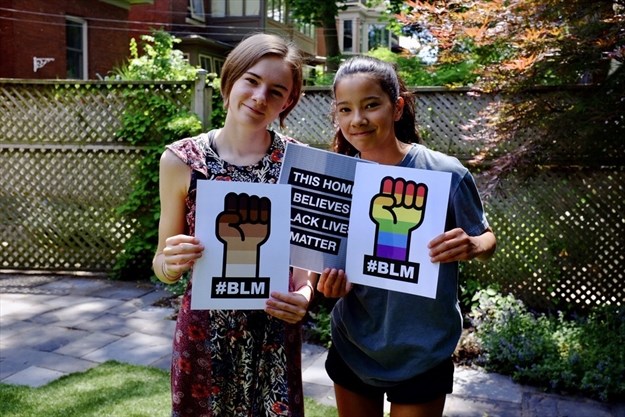
How Three Young Leaders Went Beyond Boasting and Posting to Hosting
As sad as they are, I find that treasures often emerge after a tragedy. That’s exactly what we’ve seen in the aftermath of the George Floyd murder at the hands of Minneapolis police officer Derek Chauvin. Over the last several weeks, the whole world has witnessed protesters, mostly young protesters, gathering in major cities to march under the banner of Black Lives Matter.
Their participation in this movement can be summed up into three categories.
Posting
What’s in vogue today is to post on social media sites. Millions have joined the chorus to affirm that black lives do indeed matter. In fact, some who post something on Instagram get angry with anyone who doesn’t post, judging them for their inactivity. Posting is better than nothing.
Boasting
Others don’t stop at mere posting; they proceed to boast about what they’ve done to further the cause of racial justice and equality. It’s often a humblebrag, but they love talking about what they’ve done as heroes of the cause. They marched, carried a sign, challenged a friend or family member, or signed a petition.
Hosting
Once in a while, however, you meet someone who goes beyond the call of duty. They decide they’re going to take sacrificial action on behalf of others. They assume the role of a servant-leader “hosting change” on behalf of a victim. They go further than talking or typing.
Case in point? Jack Powers, Sofi Ishikura and Callie Leszek
Hosting Change for Others
Jack Powers is an 11-year-old sixth-grader from Missouri who is mowing lawns – not to raise money for himself – but for others. Powers decided to use a simple task, mowing lawns, to raise money for the Black Lives Matter movement.
When asked about the “why” behind his actions, he said, “I just wanted to make a change and I didn’t like how people were being treated.”
Two ninth-graders, Sofi Ishikura and Callie Leszek, took a similar initiative in Ontario, Canada. They created and sold Black Lives Matter protest signs for $15 each to donate to the movement. They’ve raised $3,000 for the cause, and the fundraiser is continuing to grow.
“I know we’re fortunate. We’re lucky, and so we felt we needed to do something to help others,” Leszek says. “So much of the population is under 18 and they sort of feel powerless throughout this. We can show them that there are things you can do to make a difference.”
What an amazing example of this generation taking initiative and solving problems.

Photo via Toronto.com
How Young Influencers Think When They Host Change
Jack, Sofi, and Callie’s examples were only possible because of their perspectives. They saw beyond what was required and pushed for what was possible. Here are a few mindsets I see in them that we should be encouraging in all students today.
They think “progress” not just “protocol.”
Choosing protocol meant merely doing what everyone else is doing; following the suggested norm we all saw on social media. Millions posted something. Hundreds of thousands protested. These ‘norms’ are not bad. In fact, they are good, but Jack, Sofi, and Callie weren’t satisfied with participating in just those norms. They set their own standard by asking: What does progress require of us? It meant restoring what was broken. When young leaders choose to lead progress it usually means doing something above the call of duty. It often leads them to think original thoughts and to take unique action steps.
They think “respond” not just “react.”
A violent reaction to police violence often just leads to more violence. As it was once said, “An eye for an eye just leaves the whole world blind.” In an interview with Callie, she shared how her actions were more about responding than just reacting: “When people walk down the street and they see these posters everywhere, they know they have allies,” says Leszek. “We’re supporting them, there for them, and that we’re all working together to try to create change.”
They think about “tomorrow” not just “yesterday.”
If we only focus on what happened in the past, then revenge will be the only thing that makes sense. For too long, justice has been elusive to minorities, and it’s easy to become preoccupied with that history. Especially since far too few of those injustices have been acknowledged, let alone made right. But focusing only on the past without thinking about how we move forward is like gazing at the rearview mirror while trying to drive straight ahead.
I believe change will happen, and I believe it will be led by Generation Z. Especially if we challenge them to do more hosting than posting.






